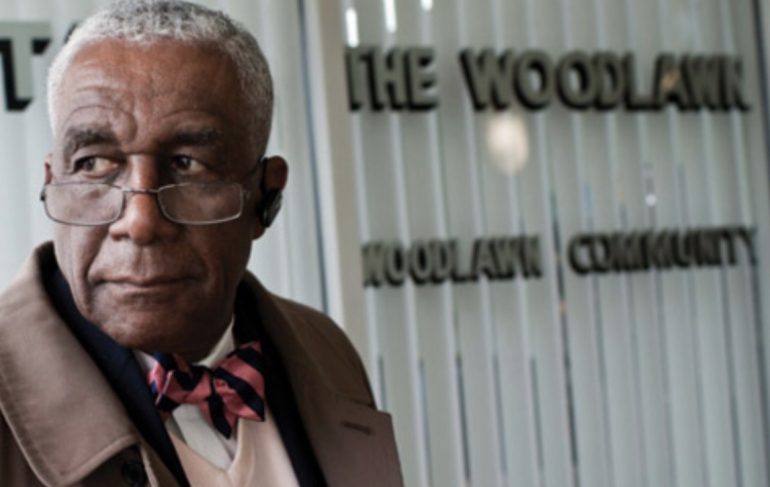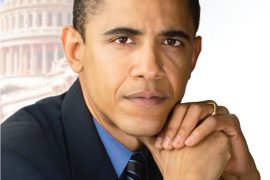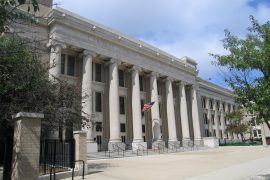The Chicago Sun-Times wrote a series of articles about the Rev. Dr. Leon Finney Jr. beginning September 6, 2019, revealing court bankruptcy proceedings on his substantial real estate properties on the South Side.
Finney managed about a fourth of all CHA housing and was paid $170,000 a month for professional services rendered. The articles reveal bankruptcy, court proceedings, divorce proceedings and the judge’s statement. It’s a dark look at a man who has served his community and often saved it.
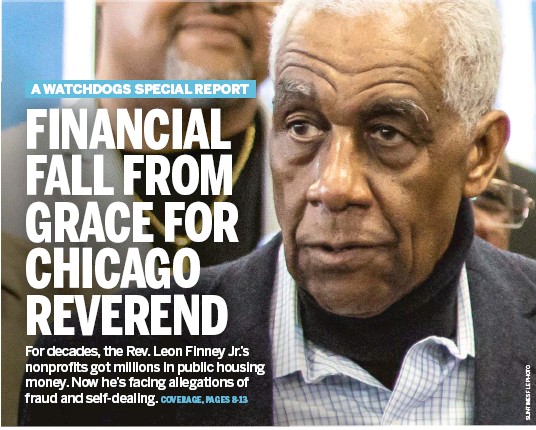
According to the Sun-Times articles, the judge said, “You could call it dishonesty. You could call it gross mismanagement. You could call it fraud. You could call it incompetence. It is all of those things.”
Earlier this year, the judge in the bankruptcy case said she was “appalled” by Finney’s conduct and threatened a referral to federal prosecutors as she began to unravel the tangled finances and determine what Finney knew of them.
At a court hearing in February, U.S. Bankruptcy Judge Carol A. Doyle accused Finney’s The Woodlawn Organization (T.W.O.) in one instance of “at least malfeasance.”
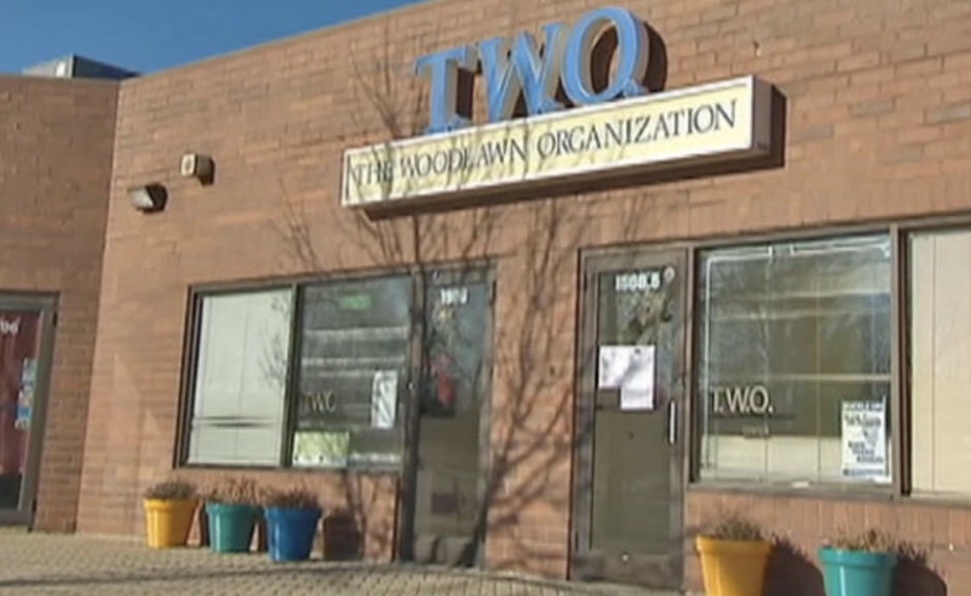
The articles are unusual. The four reporters who compiled them are not staff Sun-Times reporters; they are sponsored by a foundation that funds journalism-oriented projects, Report for America.
The authors of the article are contributors that have been brought on by the Sun-Times to write about the South and West Sides. So here you have an outside group writing about African Americans for a daily newspaper. Media organizations, particularly print, are seeking innovations to increase revenues and readership.
The account was released via the Internet on Friday, September 4. I was at a party and phones were buzzing with the story about Finney. Sunday, it was front-page, headline news. Online, there were videos and full court documents, including a transcript of Finney’s deposition.
Needless to say, this story has stirred conversation in the Black community, asking if Black leadership is under attack and if the Sun-Times is aiming negatively at Black leadership. The conspiracy theory is in full force.
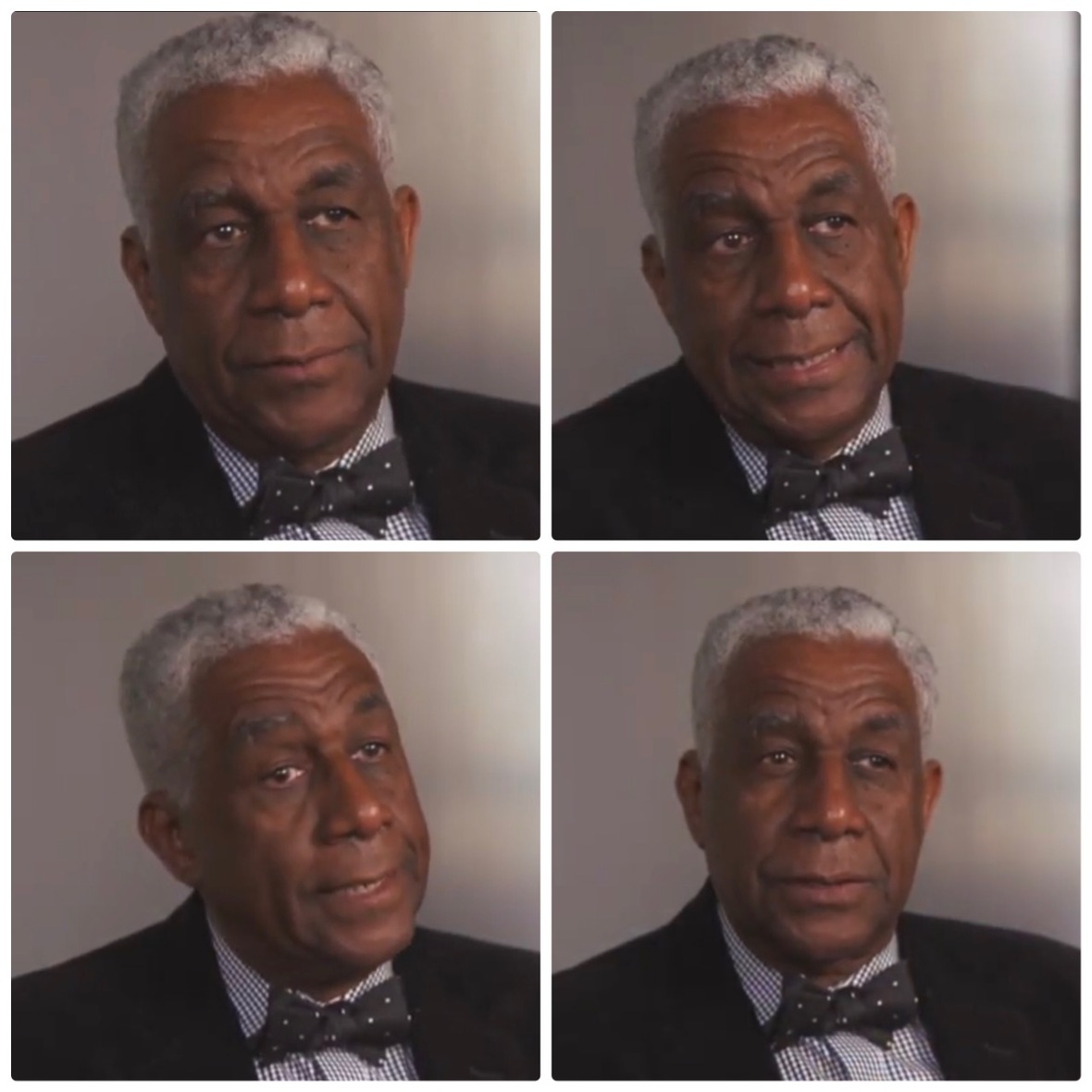
Finney is a long-term player in Woodlawn, where the Obama Library is scheduled to be built. He is one of the largest landowners in the areas. The Obama Library will transform the Woodlawn landscape with economic gain for many. People are anxious. It is about the land. Woodlawn is nicely positioned, mid-South Side and near the University of Chicago. Is the story on Finney a land grab, some ask?
Finney is accused of fraud, mismanagement and self-dealing. For the past year, he has been afflicted with serious health challenges and that may have caused some business missteps.
But Rev. Leon Finney has been a leader in the Black community before he even became a minister. In October of 2003, he stepped in to save the historic (1889) Metropolitan Apostolic Community Church.
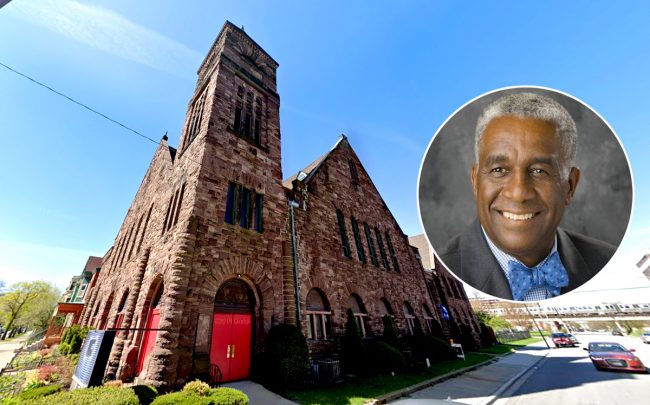
It was Mayor Richard Daley who asked Leon to take the church and save it from demolition. Today the historical church faces foreclosure and it would be an absolute shame to see it discarded.
Take The Full Measure
For the sake of full disclosure, I am a friend of Leon Finney’s. We have participated throughout the years in political campaigns and community efforts to improve and better Chicago’s Black community.
So as the Chicago Sun-Times writes negatively, I am concerned that they miss the full measure of the man. Not to say that they have not written the truth, but their documents are pulled directly from court records, without the benefit of quotation marks. The courts will decide his fate.
Finney has been controversial as he has moved through the city’s top political circles, making friends and enemies along the way. But he has clearly been about the business of making Chicago’s Black community better. That is not always an easy job as you fight the forces and powers that be.
Finney has been a community leader and in the forefront of Black Chicago and its politics for decades. He has been an aggressive fighter and has battled for the benefit of the Black community with insight and perspective.
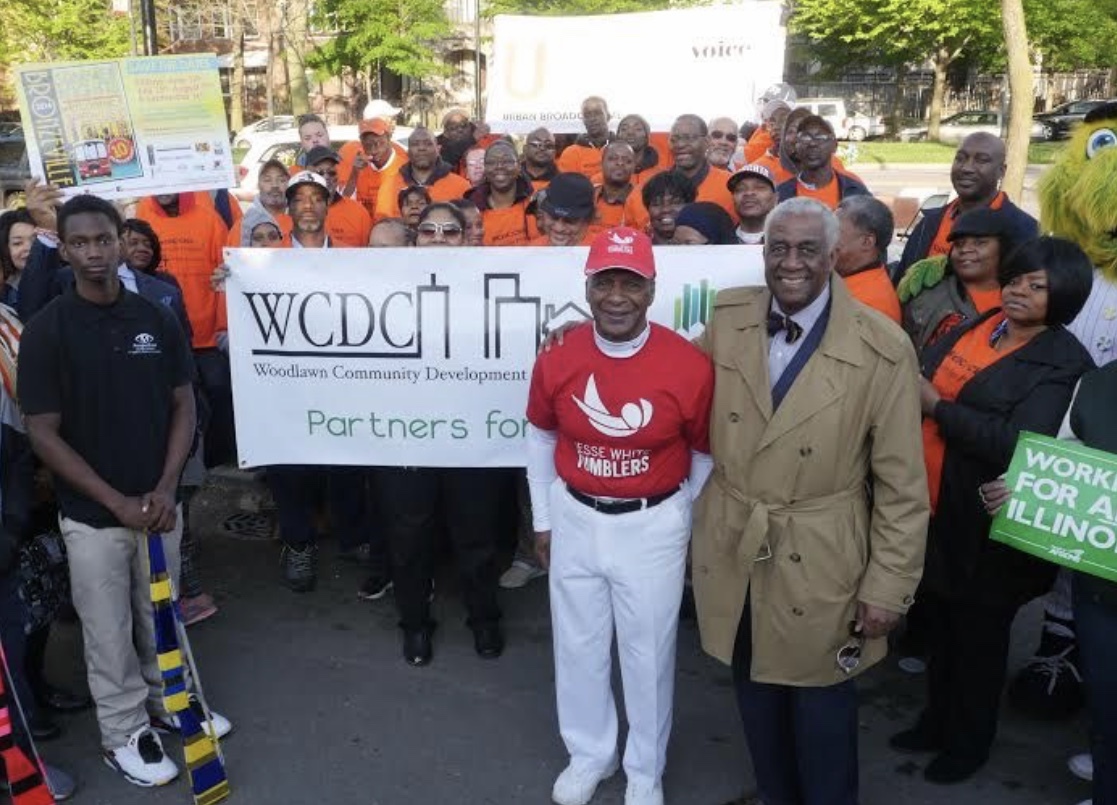
I have not always agreed with his methods or his politic – in fact, we have fought fiercely – but he has always been in the forefront. He is respected and well considered. After an election where we may have been on different sides, we have always assumed our friendship core. He has behaved this way with many.
There is not a politician, Black or white, for the past 40 years that has not sought his counsel and campaign involvement. Chicago is a political city and Black and white politics is a matter of fact. Finney has led campaigns with strategy, fundraisers and organization.
He is almost solely responsible, for example, for the senatorial campaign of Carol Moseley Braun, as she became the only African-American female ever to sit in the United States Senate. He was among the first to see the path for her win and he rallied the troops.
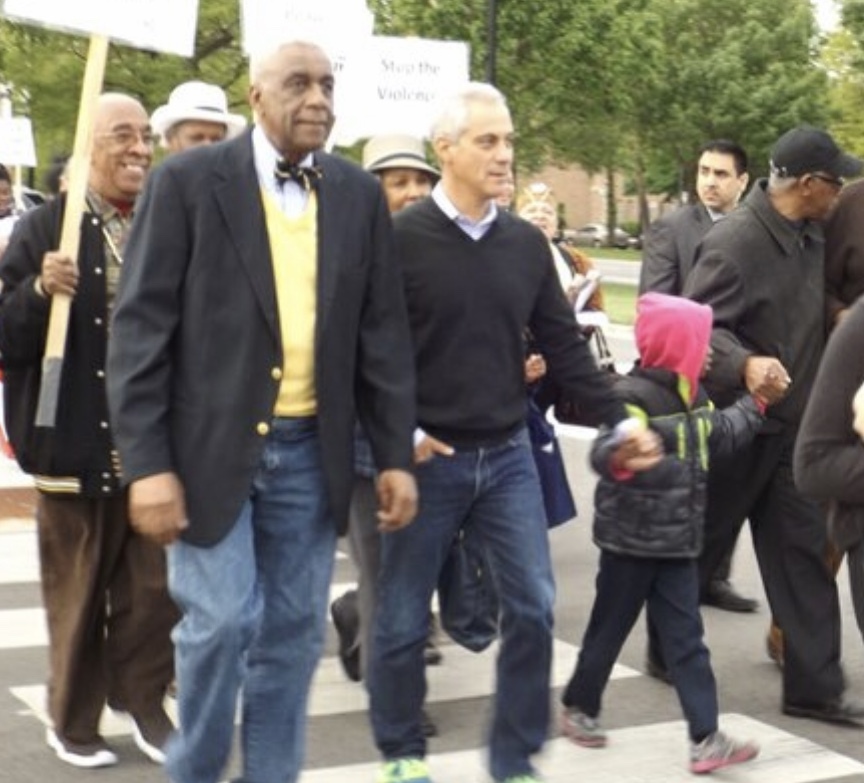
Leon Finney was involved in Harold Washington’s mayoral campaigns. He was the Midwest Director for the Jesse Jackson presidential campaign. For Barack Obama’s presidential campaign, he shared his community organizing skills for community engagement in Indiana. Most recently, he has been involved in efforts to bring the Obama Library to Jackson Park.
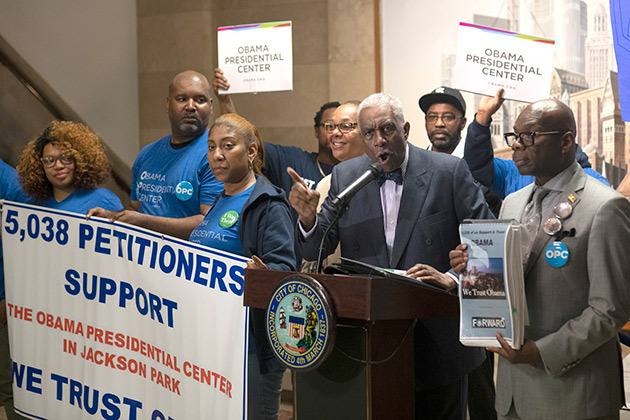
Finney, along with the late Bishop Arthur Brazier of Apostolic Church, has been on the front line of saving, rebuilding and protecting the land of the Woodlawn community. Brazier was his mentor and together they saved Woodlawn dating back to 1968, after Dr. Martin Luther King’s assassination.
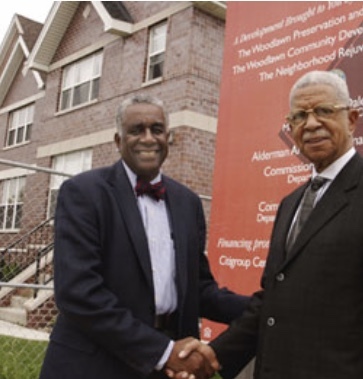
The South Side, and particularly the Woodlawn community, was seized with gang activity with the infamous Blackstone Rangers and East Side Disciples. The gangs were being politically (Republican) motivated to be destructive and negative as they extorted businesses and robbed and burned down their neighborhoods from State Street to Stony Island. The territory included the University of Chicago Campus to Oakwood Cemetery on Cottage Grove.
It was a young Finney, the former marine, who led the charge to bring the street gangs together for a truce and to encourage peace and stop the violence. Not many were willing to tangle with the gangs of Jeff Fort (the Stones) and Larry Hoover (the Disciples) the way Leon did.
Community Organizing
Finney exhibited organizing at its best as he pulled the community together at multiple levels, including businesses, politicians, whites and Blacks, clergy, academia, downtown types, and social service agencies. He was a solider in action.
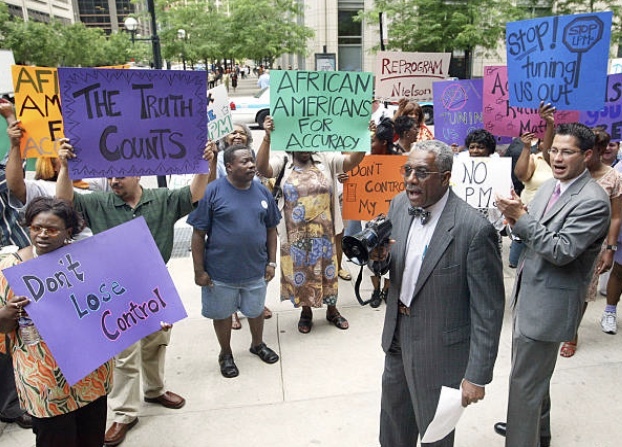
He argued jobs and economic development. He argued poverty. He met in church basements with the gangs, arguing education and civic responsibility. He was too often alone, but he was the go-to guy. He was threatened, but said thank you to the threat and kept moving forward.
Finney brought the established Black community to the table, kicking and screaming all the way. But he knew it would take all to solve the problem. He was diligent and focused with marine discipline and determination, often putting himself in a danger zone.
Saul Alinsky trained him as a community organizer. As a part of the effort to clean up and save Woodlawn, Finney and the local politicians of the day were responsible for closing 17 taverns on 63rd Street, from Dorchester to Kenwood, which is not a big area.
He solicited the help of the late and powerful Marshall Korshak, who was a 5th Ward committeeman and also the attorney for the liquor industry. Korshak literally went against his liquor clients to improve the neighborhood. Crime and violence went down in the area after a liquor referendum in 1968.
Finney’s organizations were among the largest employers on the South Side, with 350 full and part-time workers. He built and sold nearly 1,500 units of mixed-income housing. In the Woodlawn community, he built 277 mixed-income homes valued at $52 million. He has been a builder and along the way has taught young contractors.

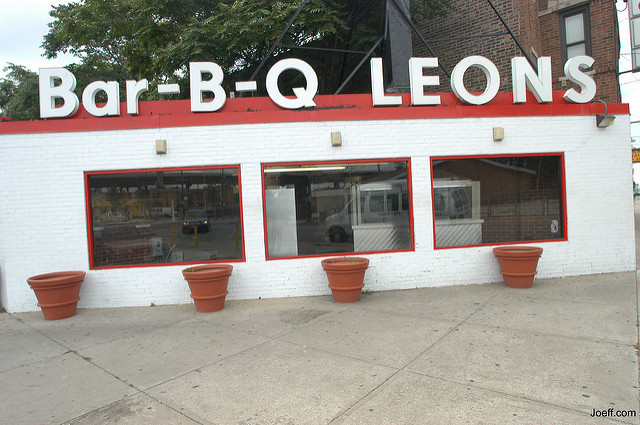
Police brutality is not a new issue in Chicago. In 1972, Finney was an organizer of Concerned Citizens for Police Reform, which was led by the late Congressman Ralph Metcalfe. It was one of the first major massive efforts to halt police brutality in Chicago. Those efforts changed the police force and brought forth new politicians and new political mandates. Chicago became a better place. Finney fought racism and beat the odds.
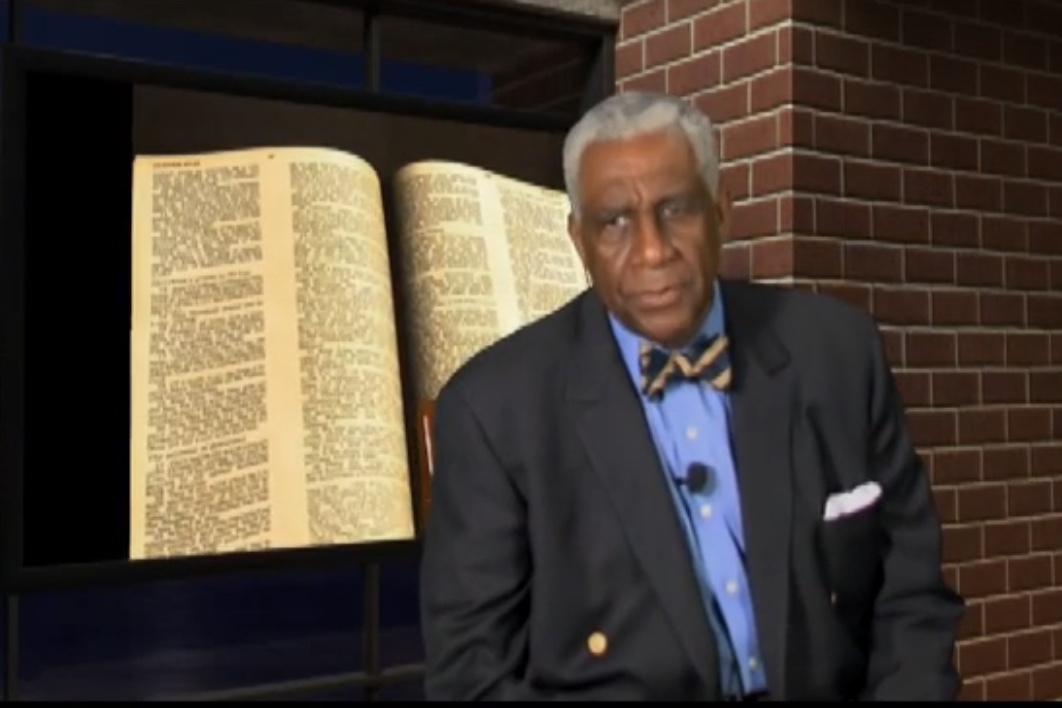
In 1995, when Finney decided to seek a theology degree, he organized the African-American Leadership Partnership with the McCormick Theological Seminary-University of Chicago cluster of divinity schools. This educational stewardship provided masters and doctorate degrees for 115 African-American religious leaders. The clergy improved and Chicago became a better place.
Given what he has accomplished, I am not ready to throw Leon Finney out because of the Sun-Times reporting. He has been a good guy and has served Chicago’s Black community well.
At this time, we should be watchful of the courts and faithful to the go-to guy as we await the outcome of the verdict. And by all accounts, we should view the man in his full measure. Let’s stay vigilant as reports are provided on Black Chicago.


